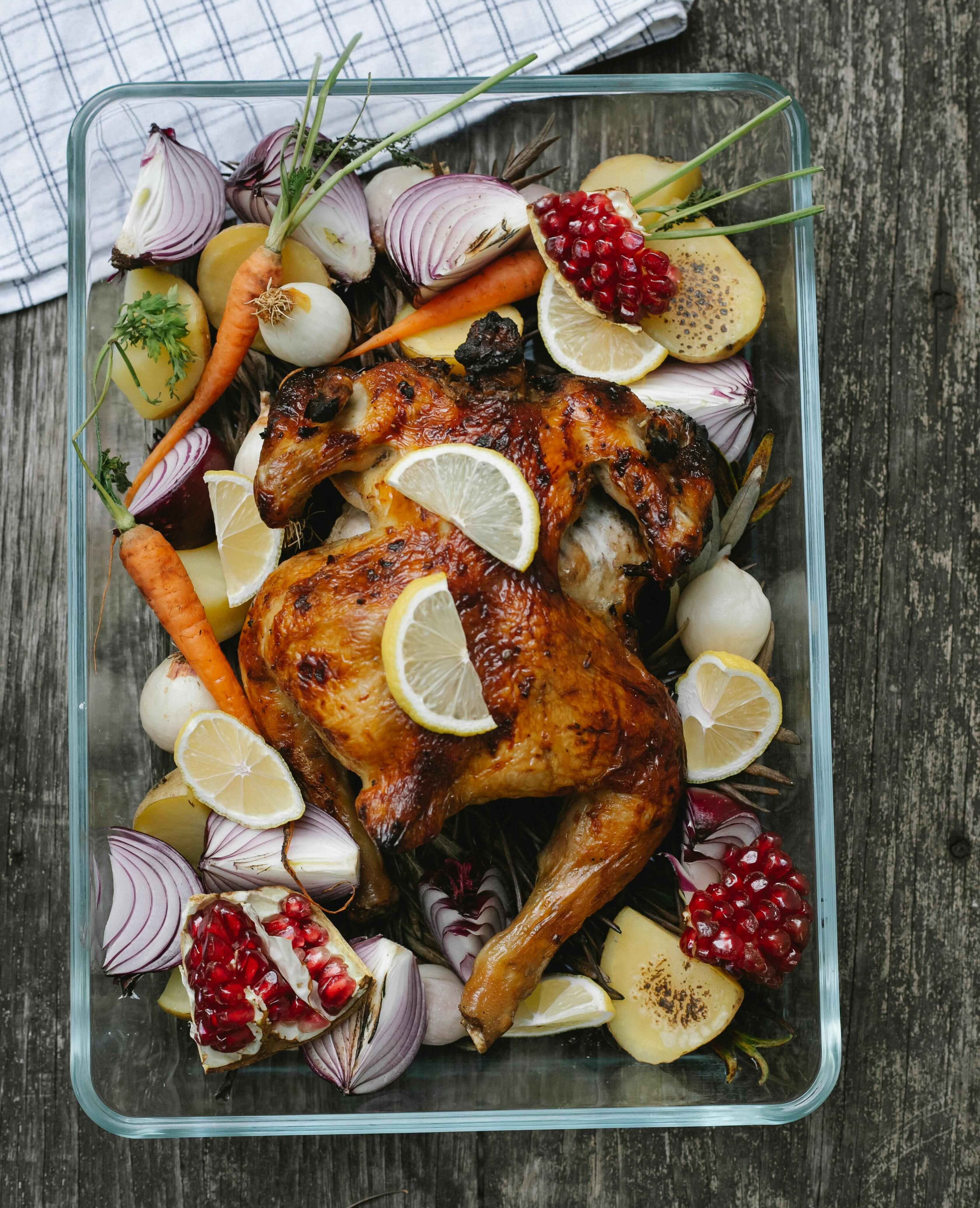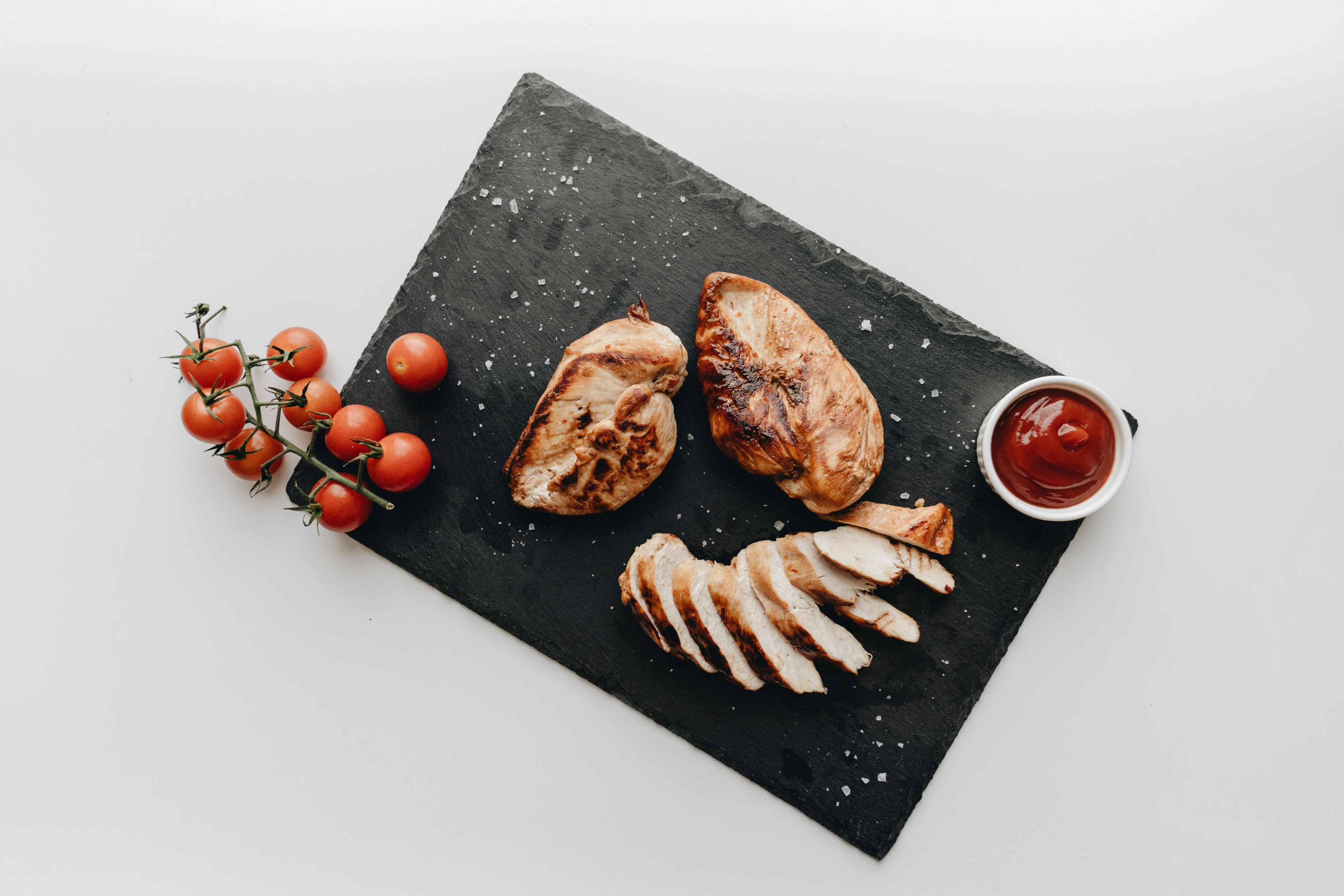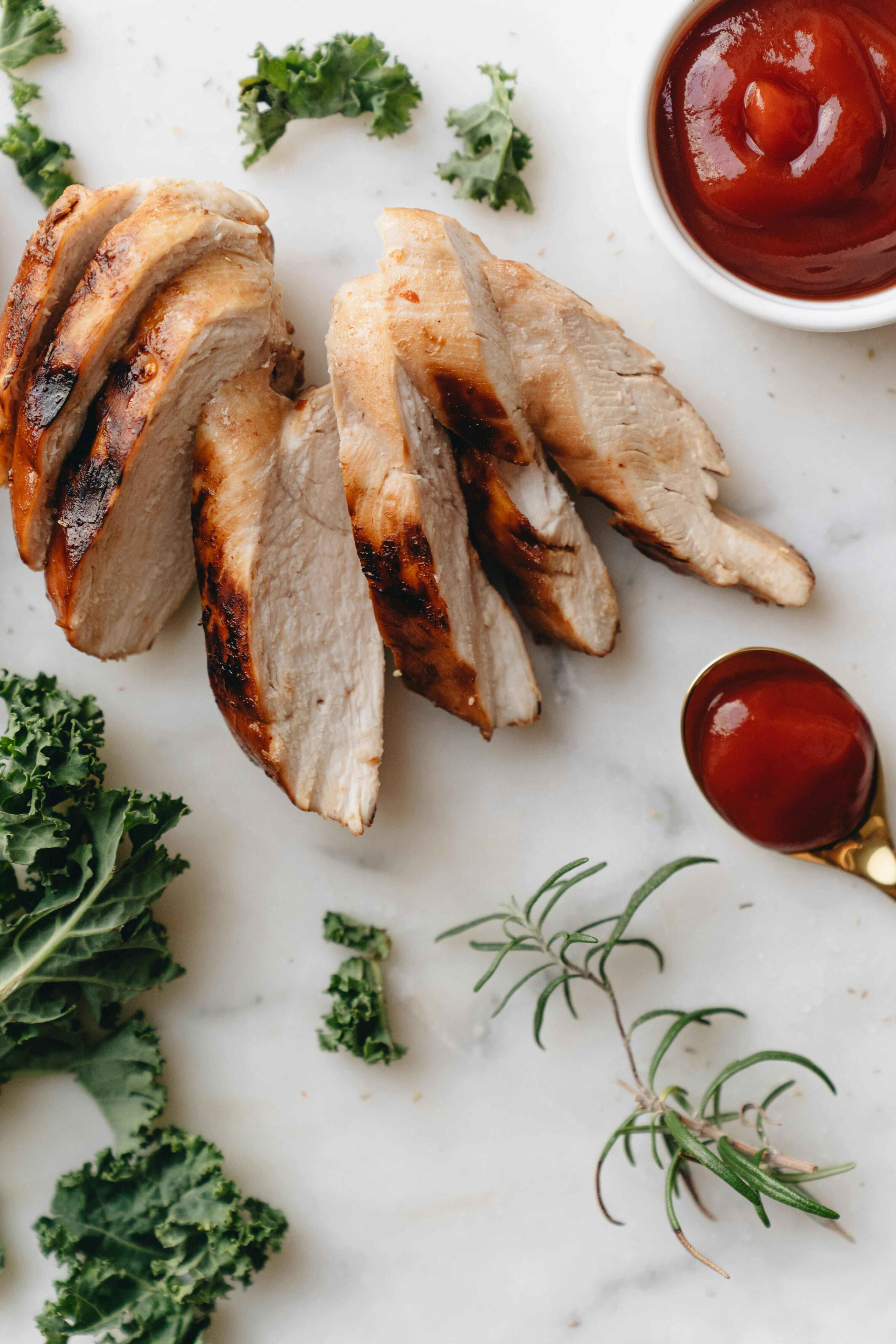How Long Does Cooked Chicken Last in the Fridge or Freezer?
How Long Does Cooked Chicken Last in the Fridge or Freezer?
When chowing down on that delicious chicken dinner, whether it's a rotisserie chicken or our favorite chicken tacos, there's often a question in the back of our minds: "How long does cooked chicken last in the fridge or freezer?" It's not just about eating the leftovers the next day — it's about making sure your chicken is safe to eat in the first place.
After all, leftover chicken can be turned into tons of different meals throughout the week — if stored correctly!
What Is the Shelf Life of Cooked Chicken?
According to the U.S. Department of Agriculture (USDA), cooked chicken can last in the refrigerator for three to four days. In the freezer, it can be safely stored for two to six months.
This shelf life changes based on the temperature of your fridge, how soon you store it after cooking, and the type of chicken. Foodborne illnesses are a big deal, and proper storage is key to preventing bacterial growth that can lead to bad-tasting food at best or food poisoning at worst.
What Happens to Your Cooked Chicken in the Fridge?
When cooked chicken is left out, it enters the "danger zone" — temperatures between 40°F and 140°F — where bacterial growth booms. This growth can lead to food poisoning caused by bacteria like Salmonella and Listeria.
Here are some telltale signs to look out for:
- Odor: Fresh chicken should have a mild smell or none at all. If you smell anything sour or unpleasant, it's a clear indicator that the chicken is off and probably no longer safe to eat.
- Texture: Healthy cooked chicken is typically firm and moist. If it feels slimy or sticky, this is a sign of bacterial growth and spoilage.
Appearance: Look for any changes in color. Spoiled cooked chicken might appear dull or have spots of mold or discoloration. Keep an eye out for any gray coloring — this is a clear sign it’s not okay to eat. - Taste: If you're unsure and decide to taste it, spoiled chicken will often have an off, sour flavor. But tasting it should be the last resort — there’s no reason to risk food poisoning.
Regular checks for these signs are important, especially if you store cooked chicken for multiple days.

How Do I Store Cooked Chicken?
To ensure your chicken remains delicious and safe, here are some best practices:
- Regulate Fridge and Freezer Settings: Double-check that your fridge stays below 40°F and your freezer at 0°F.
- Keep It Covered: Besides using airtight containers or plastic bags, make sure the chicken is fully covered to prevent exposure to air, which can speed up spoilage.
- Consider the Cooking Method: Different preparations, such as a moist chicken curry or a dry-roasted chicken breast, may have different storage needs. Typically, drier preparations last a bit longer.
- Maximize Flavor Preservation: For dishes like chicken tacos or chicken salad where the flavor is important, add a layer of cling film over the food before sealing it in a container. This extra barrier can help maintain flavor and texture.
- Avoid Repeated Temperature Changes: Avoid taking the chicken in and out of the fridge or freezer. Constant temperature changes can compromise the safety and quality of the chicken.
- Opt for Shallow Containers: When using containers, opt for shallow ones to allow for quicker cooling and more even temperature distribution within the chicken.
- Mind the Expiration Dates of Ingredients: If your cooked chicken includes other ingredients (like in a chicken salad), remember that the shortest expiration date among the ingredients could dictate how long the dish can be safely stored.

What Are the Best Practices for Freezer Storage?
If you want to prolong your cooked chicken's shelf life even further, the freezer is your best bet. Freezing essentially pauses the freshness of your chicken dishes for later.
Here are some tips:
- Pre-Cool Your Chicken: Allow it to cool in the fridge before freezing your chicken. Freezing warm, cooked chicken could result in a loss of moisture and affect its texture.
- Portion Your Chicken: Store your chicken in meal-sized portions to avoid repeated freezing and thawing. This maintains the quality of the chicken and makes it more convenient for future use.
- Protect Against Freezer Burn: Freezer burn can change the taste and texture of your chicken. Use heavy-duty freezer bags, multiple layers of cling film, or airtight containers to protect against freezer burn.
- Proper Labeling: Don’t forget to label your stored chicken with the freezing date. This way, you'll have a good idea of its age, so you don’t accidentally leave it in the freezer until next Christmas.
- Thaw Correctly: When you’re ready to enjoy your stored chicken, thaw it in the fridge — definitely don’t thaw it on the counter. Placing it in the refrigerator ensures a slow, safe thawing process.
Note: Keep in mind that while freezing keeps your chicken edible for longer, it may slightly affect the texture and flavor when compared to freshly cooked chicken. Still, it's a fantastic way to preserve leftover chicken for yummy meals later.
Safe Defrosting and Reheating Methods
When it comes to enjoying your stored chicken, defrosting and reheating it is just as important as how it was initially prepared and stored.
Here are some steps to keep your defrosted and reheated chicken safe to eat and delicious:
Gradual Thawing in the Refrigerator
The safest way to defrost frozen chicken is by transferring it from the freezer to the refrigerator, allowing it to thaw gradually. This method keeps the chicken out of the "danger zone" temperature range where bacterial growth accelerates.
Planning ahead is important because this can take hours, depending on the size of the chicken portion.
Cold Water Method for Faster Thawing
If you're short on time, you can defrost chicken more quickly by placing it in a leak-proof plastic bag and submerging it in cold water. Change the water every 30 minutes to keep it cold — warm water can put your chicken in the danger zone.
This method can defrost chicken in a matter of hours. Remember, once defrosted, cook the chicken immediately.
Microwave Thawing
For the quickest defrosting, use the microwave. Most microwaves have a defrost setting specifically for this purpose.
The microwave can cause your chicken to thaw unevenly, though. If you use this method, cook the chicken immediately after thawing.
Reheating to the Right Temperature
When reheating cooked chicken, whether it’s a savory chicken breast or a portion of rotisserie chicken, make sure it reaches an internal temperature of 165°F. Use a food thermometer to make double-sure.
Avoid Overheating
Reheat only as much chicken as you'll eat in one sitting. Overheating or repeatedly reheating chicken can dry it out, affect its flavor, and potentially increase the risk of food poisoning. If using a microwave, cover the chicken to retain moisture and reheat evenly.

How To Use Leftover Chicken in Your Meal Planning
At HelloFresh, we're all about making the most of your meals while ensuring they're delicious and nutritious. Leftover cooked chicken, when stored properly, can be a versatile ingredient in your meal planning.
Here are some creative and tasty ways to incorporate leftover chicken into your weekly menu, ensuring nothing goes to waste:
- Salads and Wraps: Leftover chicken breast is perfect for slicing into salads or tucking into wraps. Combine with fresh veggies and a tangy dressing for a quick, healthy lunch.
- Soups and Stews: Shred your leftover chicken and add it to soups or stews. It's a great way to infuse flavor and protein into comforting dishes.
- Pasta and Rice Dishes: Mix diced chicken into pasta sauces or stir-fry it with rice and vegetables for a satisfying dinner. These dishes are filling and a great way to balance your meal with carbs, protein, and veggies.
- Sandwiches and Paninis: Craft gourmet sandwiches or paninis with your leftover chicken. Add some cheese, fresh greens, and a spread of your choice for a yummy lunch or dinner.
- Hearty Casseroles: Combine your chicken with vegetables, a creamy sauce, and a topping of breadcrumbs or cheese for a hearty casserole. This is a perfect dish for those cooler evenings.
- International Flavors: Use your leftover chicken in quesadillas, tacos, or curries. These meals are not only flavorful but also a great way to explore different cuisines.
- HelloFresh Recipes to the Rescue: We offer a variety of recipes that can be easily adapted to include your leftover chicken. Our recipes are designed to be flexible, allowing you to incorporate ingredients you already have in your fridge.